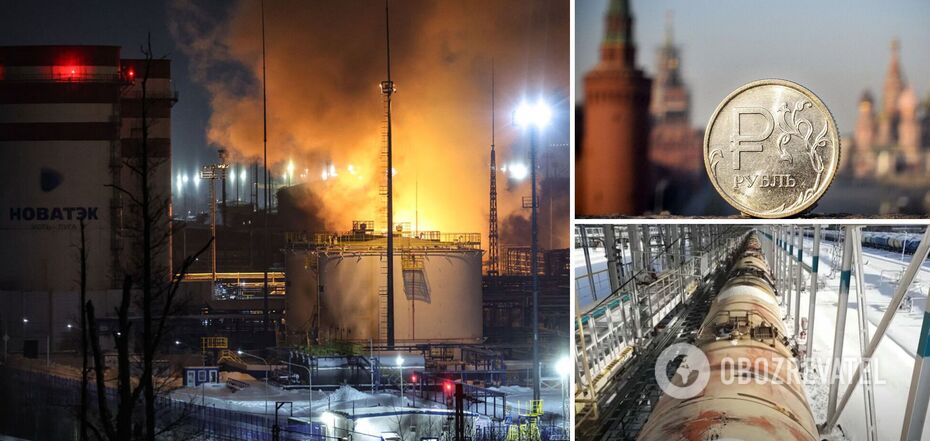News
A gas station without gasoline: Russia halts fuel exports after series of attacks on refineries
On March 1, Russia imposed a new ban on gasoline exports, less than six months after the previous restrictions were lifted. The reason was a shortage of fuel on the domestic market. This time, the shortage was caused by a series of accidents and drone attacks on oil refineries.
The export embargo was announced by representatives of the Russian Deputy Prime Minister and Minister of Energy of the aggressor country, Oleksandr Novak. The ban will be in effect for six months.
The embargo will apply to all types of gasoline and most export destinations. The only exceptions will be the member states of the Eurasian Economic Union, Mongolia, Uzbekistan, and the annexed territories of Georgia.
Also, starting March 1, Russian refineries will be obliged to sell 16% of diesel fuel on the exchange. Currently, this obligation is set at 12.5% of the total volume.
The Russian government does not hide the fact that the restrictions are related to the fuel shortage, although it does not state this directly. According to government officials, the ban is being introduced to "keep prices down during the season of high demand for fuel amid a decline in production."
After the drone attacks on refineries in January 2014 alone, Russia lost 37% of its gasoline exports. Local experts have already compared the situation to last year's attacks on the Ukrainian energy sector by the Russian Federation itself and noted that now "it's Russia's turn."
The series of attacks on refineries began with attacks on Rosneft and Novatek facilities in different regions of Russia. In Yaroslavl, an unmanned aerial vehicle crashed into the Slavneft-Yanos refinery. This led to serious consequences, including a fire at Rosneft's Tuapse refinery, which forced the company to suspend production.
The previous ban on the export of automotive fuel was imposed by the Russian Federation at the end of September 2023 due to the rapid increase in domestic gasoline and diesel prices. In the early fall of 2023, some regions of the Russian Federation even experienced fuel shortages.
These restrictions were lifted in mid-November 2023. Russia does not disclose how much foreign exchange earnings were lost due to the ban. However, it should be borne in mind that refined products are one of the most important export industries for Russia.
As OBOZ.UA reported, during the full-scale war against Ukraine, Russia spent half of the money from the National Welfare Fund (NWF), the main source of resources for a rainy day. By the end of 2023, almost 4 trillion rubles were spent from the NWF, and now only 5 trillion rubles remain in its so-called liquid part (savings in foreign currency and gold, which can be easily spent if necessary).
You can find only verified information on our Telegram channel OBOZ.UA and in Viber. Do not fall for fakes!



























